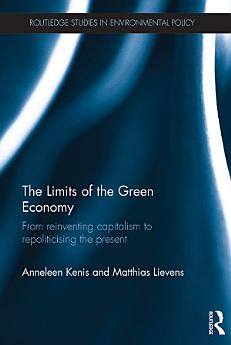The Limits of the Green Economy: From re-inventing capitalism to re-politicising the present
About this ebook
This book examines how the emergence of this new discourse has fundamentally modified the terms of the environmental debate. Interpreting the rise of green economy discourse as an attempt to re-invent capitalism, it unravels the different dimensions of the green economy and its limits: from pricing carbon to emissions trading, from sustainable consumption to technological innovation. The book uses the innovative concept of post-politics to provide a critical perspective on the way green economy discourse represents nature and society (and their interaction) and forecloses the imagination of alternative socio-ecological possibilities. As a way of repoliticising the debate, the book advocates the construction of new political faultlines based on the demands for climate justice and democratic commons.
This book will be of interest to students and scholars of environmental politics, political ecology, human geography, human ecology, political theory, philosophy and political economy.
Includes a foreword written by Erik Swyngedouw (Professor of Geography, Manchester University).
About the author
Anneleen Kenis is a post-doctoral researcher at the Divisions of Bio-economics and Geography at KU Leuven, Belgium. Her research interests include ecological citizenship, climate change, activism, air pollution, democracy, post-politics, feminism, and more broadly, political ecology.
Matthias Lievens is a post-doctoral researcher at the Centre for Ethics, Social and Political Philosophy at KU Leuven, Belgium. His research interests include representation, ideology, democracy, the concept of the political, sovereignty and constituent power, and more broadly, continental political theory.





